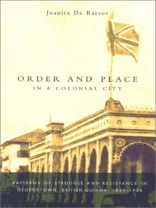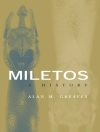The elites saw the city’s markets and streets as dirty, filled with dangerous non-white crowds. The poor saw these public places as sites of play and livelihood. De Barros shows how these opposing views set the stage for a series of petty disputes and large-scale riots. The "little traditions" of Georgetown’s multi-racial and multi-ethnic urban poor helped create a creole view of public spaces, articulated in the course of struggle. By uncovering the popular cultural patterns that underlay much of this unrest, De Barros demonstrates both their place within a larger West Indian cultural paradigm and the emergence of a peculiarly Guianese ritual of protest.
¡Compre este libro electrónico y obtenga 1 más GRATIS!
Idioma Inglés ● Formato PDF ● Páginas 264 ● ISBN 9780773570696 ● Editorial MQUP ● Publicado 2003 ● Descargable 3 veces ● Divisa EUR ● ID 5836122 ● Protección de copia Adobe DRM
Requiere lector de ebook con capacidad DRM












